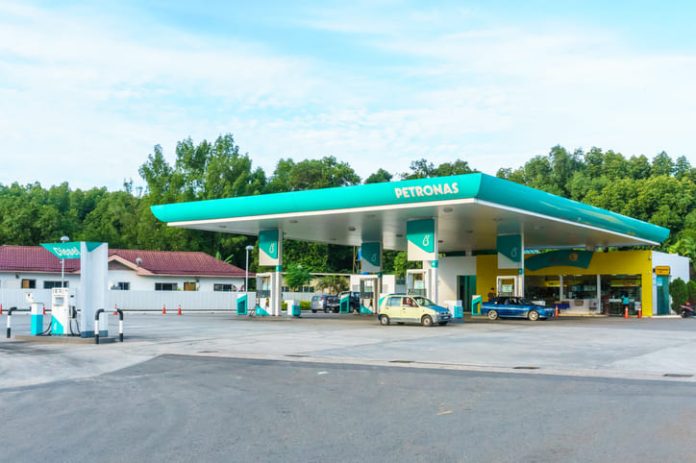Striving for a world free from emissions is a noble ambition, but how can this be achieved amid rising market volatility and litigation risks?
This is the central question for the Malaysian-based global energy giant Petronas as it marks its 50th anniversary this month.
Environmentalism is deeply ingrained in Malay culture, where nature preservation is a core value. This cultural reverence for the environment is reflected in Petronas’s commitment to environmental stewardship, driving its business model to “create better solutions that benefit people, partners, and the planet.”
In 2020, Petronas became the first energy company in Asia to set a net-zero goal. This ambitious commitment is particularly noteworthy in Malaysia, and Petronas is making significant strides toward it. By 2023, the company had reduced its annual greenhouse gas emissions by 1.8 million tonnes, established nearly 570 charging points, and deployed over 2,500 electric vehicles worldwide.
But achieving net zero is an expensive and increasingly challenging endeavour. That is why Petronas has focused on financial resilience amid market volatility, striving to balance reducing emissions while remaining competitive.
Economic conditions have exacerbated these challenges, with enduring inflation, high interest rates, and stagnant energy prices in 2024 making profitability difficult.
Additionally, there is a growing threat from litigation, especially through international arbitration. The UN recently highlighted the rise of profit-driven enterprises exploiting the investor-state dispute settlement process, posing significant obstacles to urgent environmental actions.
Arbitration cases have surged, with Asia-Pacific becoming the second most popular jurisdiction for disputes, accounting for a quarter of all cases filed last year. This trend puts over a quarter of a trillion dollars at stake.
Companies are compelled to reserve more funds for costly litigation, diverting resources needed for green initiatives. The rise in litigation has led to over $113 billion in public money being paid to private investors, with claims exceeding $856 billion, squeezing both private enterprises and national budgets and impacting green agendas.
Petronas has not been immune from this challenge. It is currently embroiled in a legal battle with the alleged heirs of the lapsed Sultanate of Sulu in the Philippines. While Petronas looks forward to the 21st century, investing in green solutions and striving for a sustainable future, the Sulu claimants are stuck in a 19th century mindset, seeking to profit from outdated colonial agreements at the expense of ordinary Malaysians and environmental welfare.
The Sulus base their claim on a treaty signed between the Sultanate and the British Empire in 1878, with the former ceding the resource-rich province of Sabah—now part of Malaysia—in exchange for an annual payment. Although Malaysia did not exist at the time of the agreement, or for more than 75 years thereafter, the Sulus argue that their agreement is still valid, demanding over $15 billion in damages from Malaysia’s domestic assets.
Yet, the Sulus never really controlled Sabah, and the Sultanate ceded any remaining sovereignty to the United States in 1915. This raises serious doubts about their authority to seek compensation for a non-existent country, from an agreement Malaysia had no part in, for territory they never truly governed.
This dubious claim has been reviewed by multiple jurisdictions in France, Spain, and the Netherlands – countries that often preach at the developing world and its duty to pursue green transitions while supporting cases that hinder their economic capacity for such transitions.
The forces supporting the Sulu plaintiffs are clearly driven not by an environmental ethos but by profit. To launch their challenge, the Sulu plaintiffs secured in excess of $20 million from British litigation funder Therium, exploiting third-party litigation funding laws that allow corporations to finance a case in exchange for a share of the award.
While this approach is quickly becoming a crucial tool for financing climate action, it’s also facing a growing risk of being hijacked for profit. This could seriously undermine the very environmental goals these claims aim to achieve. Take, for instance, Therium’s support for the UK-based Victoria Oil & Gas against Kazakhstan. Despite numerous charges against the company’s environmental practices, Therium’s backing seemed indifferent to the potential harm of providing financial support to the company.
Though Therium has not disclosed the stake they stand to gain in the Sulu case, many see this as a troubling re-emergence of colonialism, with the case threatening to siphon off resources equivalent to nearly triple the cost of Malaysia’s energy transition plan launched last year.
The case culminated in the freezing of Petronas assets in Europe although the company is not a party to the arbitral proceedings. The enforceability of the award, however, remains contested after Malaysia appealed to annul it, and the Spanish courts slapped a criminal conviction on the arbitrator for refusing to comply with a court order annulling his appointment. His motivations are unclear, but his extraordinarily high fee raises suspicions that financial incentives may have influenced both the arbitrator and the Sulu backers, undermining the legal process.
This uncertainty about the final award’s future continues, as the Sulu plaintiffs persist with a range of appeals across Europe. The lingering threat of a such a huge $15bn payout undermines both Petronas’ commitment to reduce emissions by 25% by 2030, and Malaysia’s ambitious goal of implementing the UN’s 2030 Agenda for Sustainable Development.
Despite ongoing legal wrangling and billions in frozen assets, Petronas deserves praise for sticking to its green commitments, even with stakes approaching their annual profits. Their dedication to a sustainable future is vital, especially as the green transition in developing countries depends heavily on private enterprises.
To achieve a sustainable future, the limited resources available in the developing world should be channelled towards realizing net-zero goals, rather than enriching a few dynastic opportunists and a British corporation with no green vision.




































































